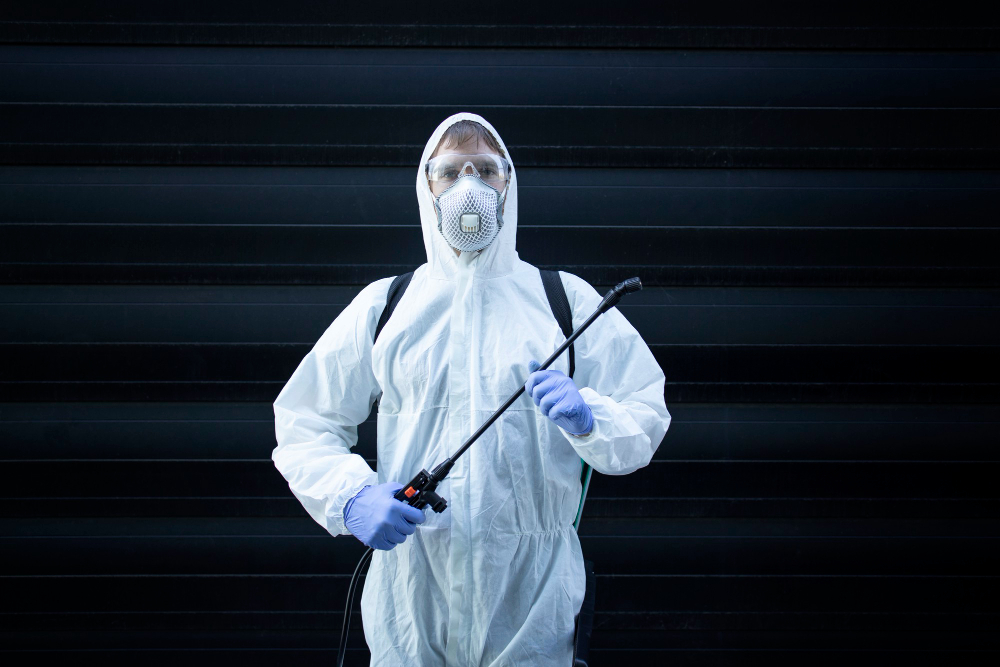Moisture control for termite prevention – Tips and Techniques
- Oct 28, 2024
 Termites, especially subterranean termites love moisture and are drawn to it like a magnet. While they feast on the cellulose in the wood, they need moisture to survive.
Termites, especially subterranean termites love moisture and are drawn to it like a magnet. While they feast on the cellulose in the wood, they need moisture to survive.
If your house has a termite problem then your humble abode might become a silent feast for the termites. To know about why moisture matters and the ways to keep the moisture away from your property without breaking the bank, continue reading our blog.
Why moisture attracts termites – Termite life cycle and habits
According to the National Pest Management Association (NPMA), properties with high moisture levels are 70% more prone to termite infestation than those with proper moisture control.
Moisture provides the ideal conditions for the termites to thrive. Biologically, termites have thin exoskeletons which make them highly susceptible to quickly dry out and die. Moisture helps them stay hydrated and also helps them nest, forage and reproduce. For example, subterranean termites require moisture to build mud tubes that help them travel between their food source and colony underground.
Additionally, moisture causes wood to retain water and timber to weaken, making it more prone to termite damage.
Moisture Control Tips and Techniques
If you live in a property susceptible to moisture retention then you will have to take conscious steps for moisture control, given that you prefer to keep the termites away. Here are some effective strategies to keep your property dry and unappealing to the termites.
1. Identify leaky pipes and other sources of moisture
It might be a small problem like a leaky pipe or a major one like a leaky roof – get it repaired immediately. Check for dripping pipes under the sink, near washing machines, or behind the walls. A small leak might seem harmless initially but constant moisture buildup creates the perfect conditions for termite infestation. Insulation of pipes might avoid condensation in colder climates.
A thorough inspection, especially after heavy rains can help you identify areas where water might be lingering longer than it should.
2. Ensure proper drainage around the property
Water retention near your foundation is one of the prime reasons for termite infestation. Poorly positioned downspouts might direct the water straight towards your property, increasing the risk of termite inspection.
Install gutter systems and maintain them properly so that the rainwater flows away at least 10 feet away from the foundation. The gutters should be free of debris for proper drainage of the water.
The soil around your property should slope away from the foundation. If your yard tends to retain water, install French drains that channel water away.
3. Identify damp spaces and find remedies
Basements, attics, and crawl spaces are some of the most preferred chilling places for termites since they tend to trap humidity. Maintaining the humidity levels below 30-50% is the key to avoid termite activity. Here are some ways to combat the problem.
- Proper ventilation: Installation of vents or exhaust fans can keep air moving thus preventing humidity.
- Dehumidifiers: If ventilation of these spaces looks impossible then you can use dehumidifiers to keep the moisture levels under control.
- Vapor barriers: The use of vapor barriers will stop the moisture from permeating from the ground below.
4. Seal cracks and gaps
Small cracks and gaps can serve as entry points for termites. Check the foundation and walls for these cracks and repair them immediately.
If you notice any small or minute cracks around doors, windows, or walls, use caulk or sealants to close them. However, if the cracks are large then contact a professional for repairs. Mesh screens can be used to cover vents preventing access to the termites.
Also Read: Pre-Construction Termite Treatment – Why Do You Need It?
5. Try preventive termite control methods
Preventive termite control methods can be adopted as early as during the construction of the property but can also be done after.
Pre-construction preventive treatments involve using termiticide-treated wood and materials for construction and more. Soil termite treatment and baiting systems can be used pre or post-construction.
Soil termite treatment involves digging a trench around the property and infusing the soil with termiticide before refilling the trench, thus creating a termite-resistant barrier around the property. Baiting systems are installed in the ground to poison the termites that come their way. These treatments work best for certain species of termites and hence you must consult with a licensed termite control company to choose the right treatment.
6. Ensure annual termite inspections
Despite making serious efforts to control moisture, termites can still be sneaky enough to enter your property. Annual termite inspections scheduled with licensed termite control companies can help identify the problem before it reaches the advanced stages.
Termite inspectors will know the right places to look for termite infestations and suggest suitable control measures to contain the infestation and eliminate it.
HiTech Termite Control
Is your home protected from moisture-related threats? Know whether your house is prone to termite damage and how to prevent it. Contact us here for expert opinions about termite control and termite treatments.
Frequently Asked Questions
1. Why does moisture attract termites?
Moisture is essential for termites' survival, helping them stay hydrated and create ideal nesting conditions.
2. What are effective ways to control moisture around my home?
Repair leaks, ensure proper drainage, and maintain low humidity in damp areas to prevent moisture buildup.
3. How can I prevent termites from entering through cracks?
Seal small cracks with caulk and repair larger ones professionally to block termite entry.
4. What preventive termite control methods should I consider?
Use treated wood, soil treatments, and baiting systems as preventive measures against termites.
5. How often should I have my home inspected for termites?
Schedule annual inspections with termite control professionals to catch potential infestations early.





